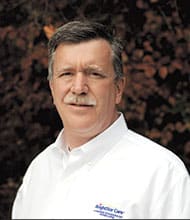
The problem is, emergencies do happen and there is no way to know when one is headed your way. I am haunted by images of elderly residents of Houston being evacuated or, worse yet, stuck in care facilities as those facilities flooded. Don’t be that person! The best way to be prepared for an emergency is to plan-ahead.
If you wait for an emergency to happen before thinking about how to react, it’s too late. So, what can you do to be ready? First, establish a network of friends to provide mutual support in the event of an emergency. Your support network should be familiar with your emergency plans and you should know theirs. You should share phone numbers, the individuals involved as well as family members to contact in the event of an emergency. You should have discussed what will happen following an emergency, i.e. who will call when and what will happen if the person being called cannot be reached.
Beyond your support network you should think through in what situations you would evacuate or attempt to evacuate versus sheltering in place. You should have a “go bag” easily accessible with necessary items in the event of an evacuation. Your go bag should definitely contain necessary medical supplies like medicines as well as items like a battery or crank operated radio so you can listen for emergency updates, water, food, candles, matches, headlamp, blanket…. This should not be considered an exhaustive or complete list but rather a conversation starter for what would be appropriate given your unique circumstances. Additional considerations for sheltering in place would include extra water (1 gallon per day per person), and food (consider having enough on hand for a week or two). Also, you will want to contact agencies that provide services at your home (like oxygen or medical equipment providers or home-care agencies), to make sure they have plans to continue in the event of an emergency. Consider listing names in your phone as ICE (In Case of Emergency) so that if you are unable to tell emergency responders who to call they can access that information on your phone. You should also consider putting together an emergency response binder with contact information for family members, doctors, pharmacies, medical equipment suppliers, etc. This binder should also list any pertinent medical conditions that might need to be known by emergency responders should you be unable to share that information yourself.
The above information related to emergency preparedness may seem daunting. Please don’t let that keep you from starting the process. Where one lives plays a part in how much planning is necessary. We are not frequently threatened by active hurricanes like the Florida coast or, as we saw last week, Houston. In Gwinnett County we are much more likely to be affected by tornado warnings, ice storms, and flooding. We are blessed to live in a county with tremendous resources available to help. For more information, I suggest you contact the Gwinnett County Office of Emergency Management, a unit of the Gwinnett County Police Department.
Tim Golden is the owner of BrightStar Care, Lawrenceville. You can reach Tim at (404)281-1537 or by emailing asktheseniorcareexpert@gmail.com. For more information please visit http://www.brightstarcare.com/lawrenceville/
Tim Golden
BrightStar Care
(404)281-1537
PO Box 634
Lawrenceville, GA 30046
email: asktheseniorcareexpert@gmail.com

